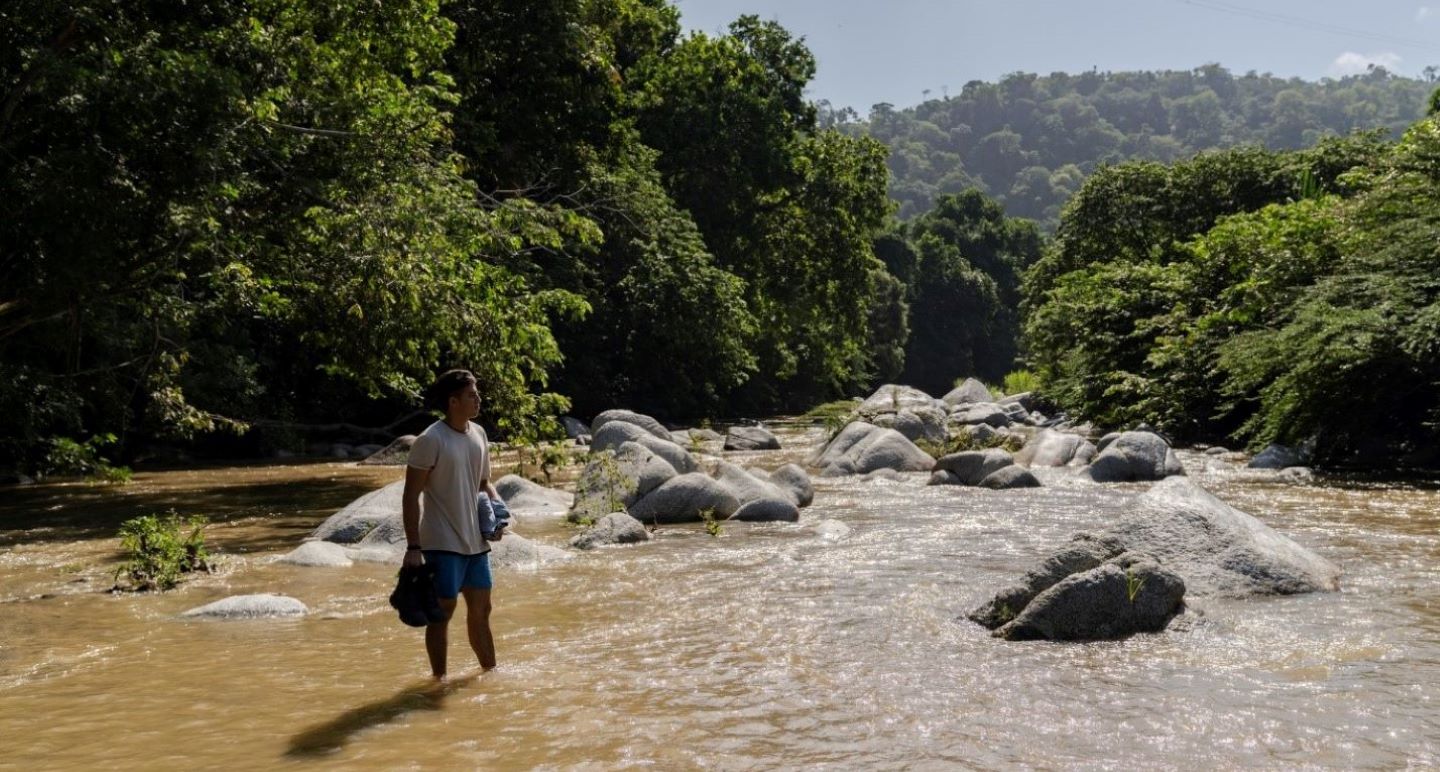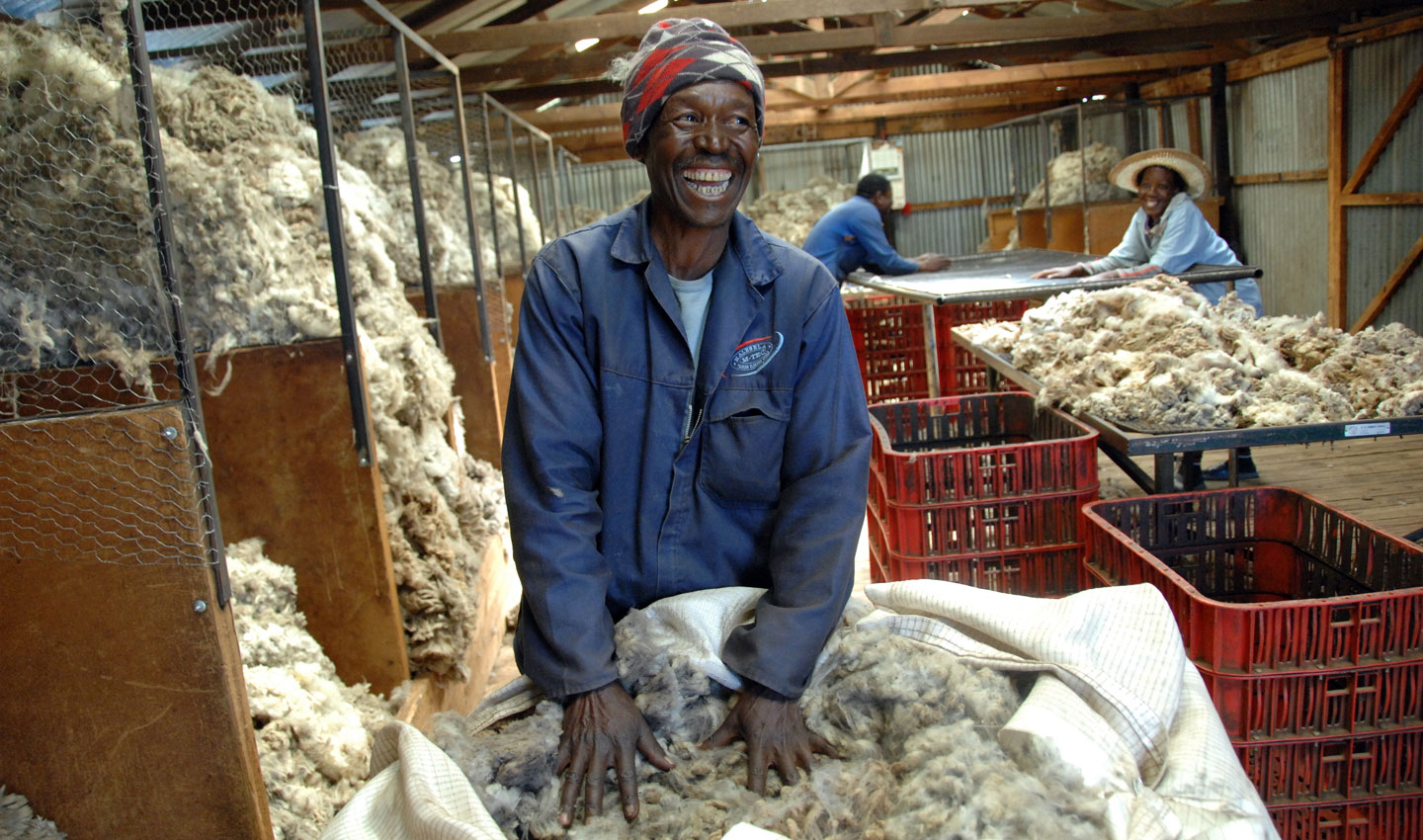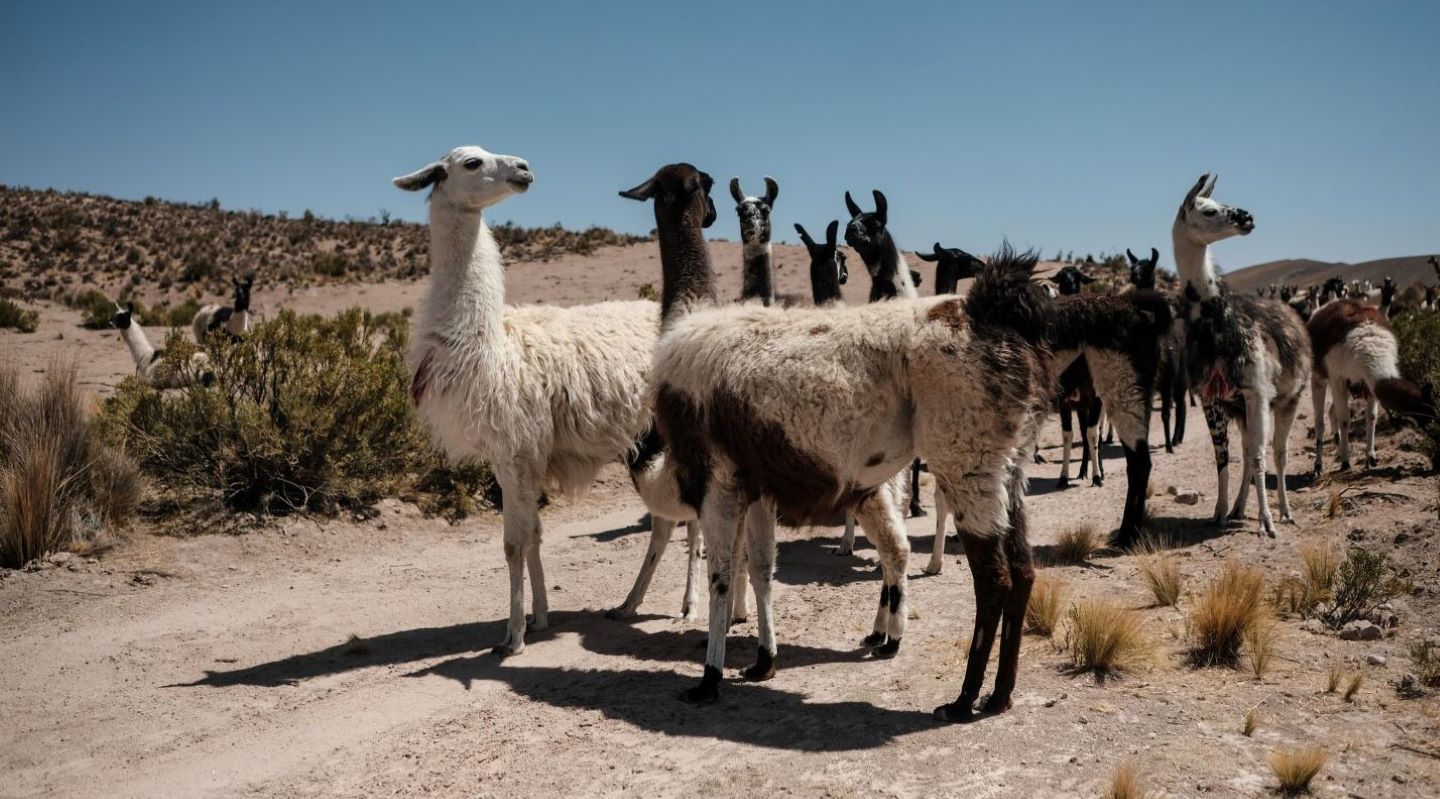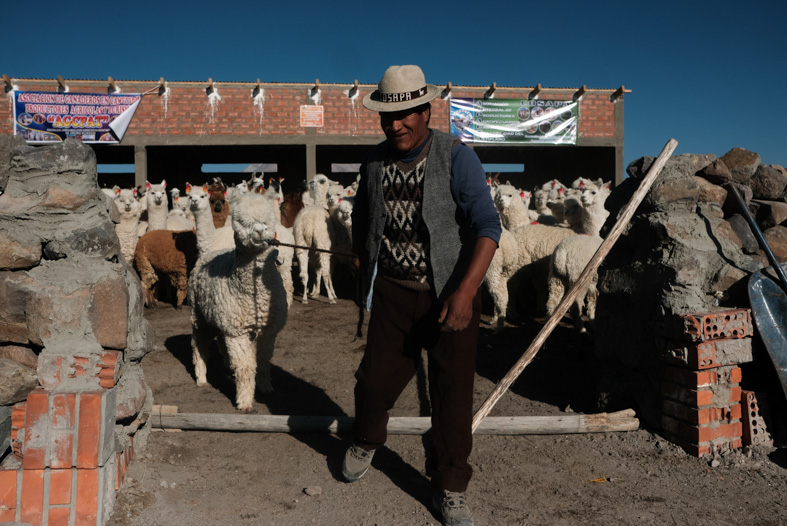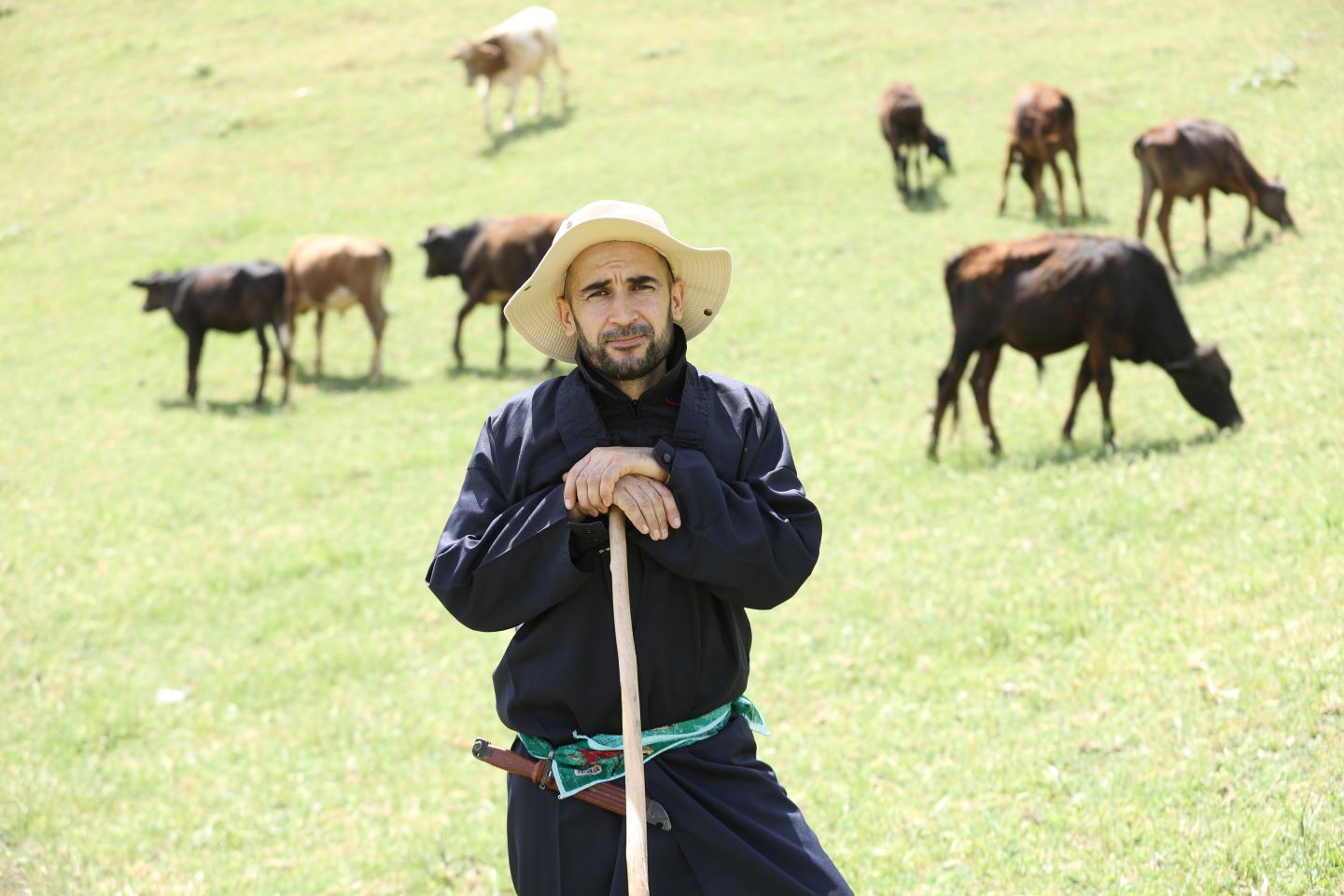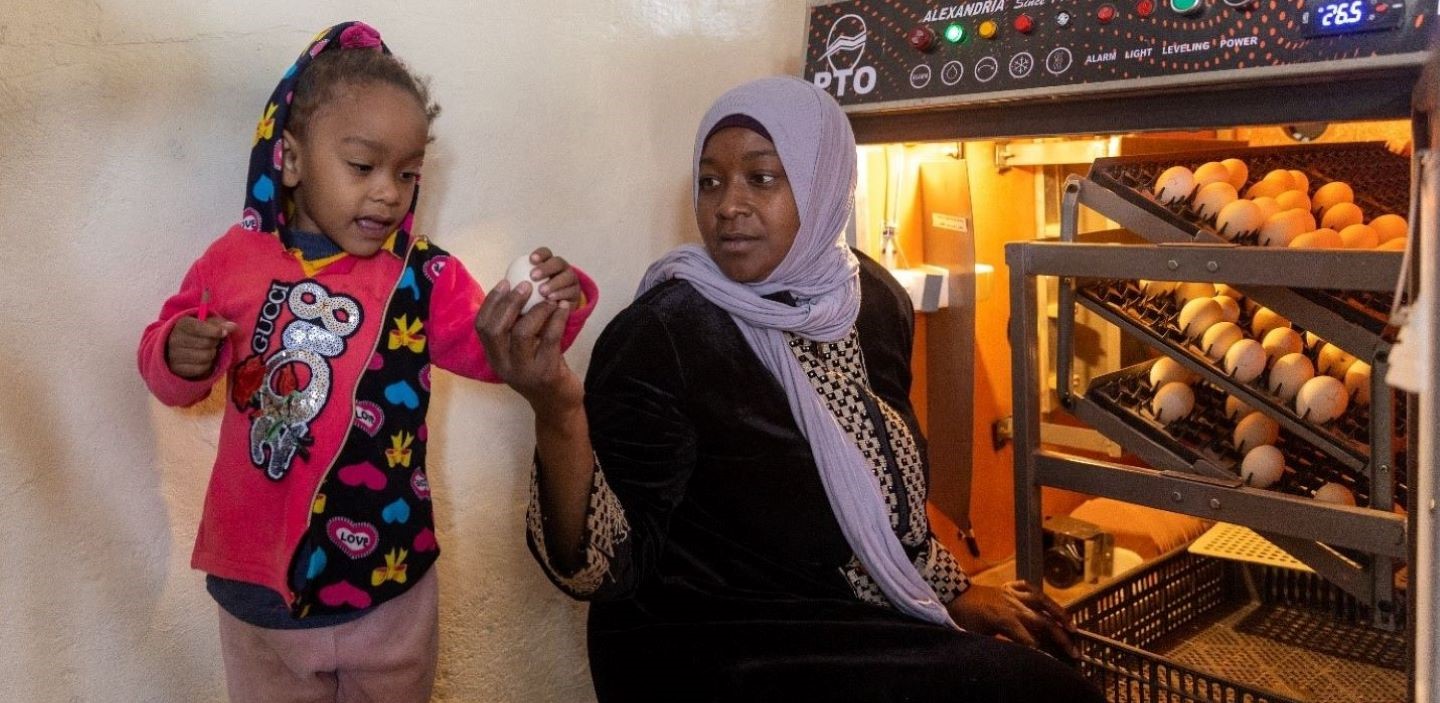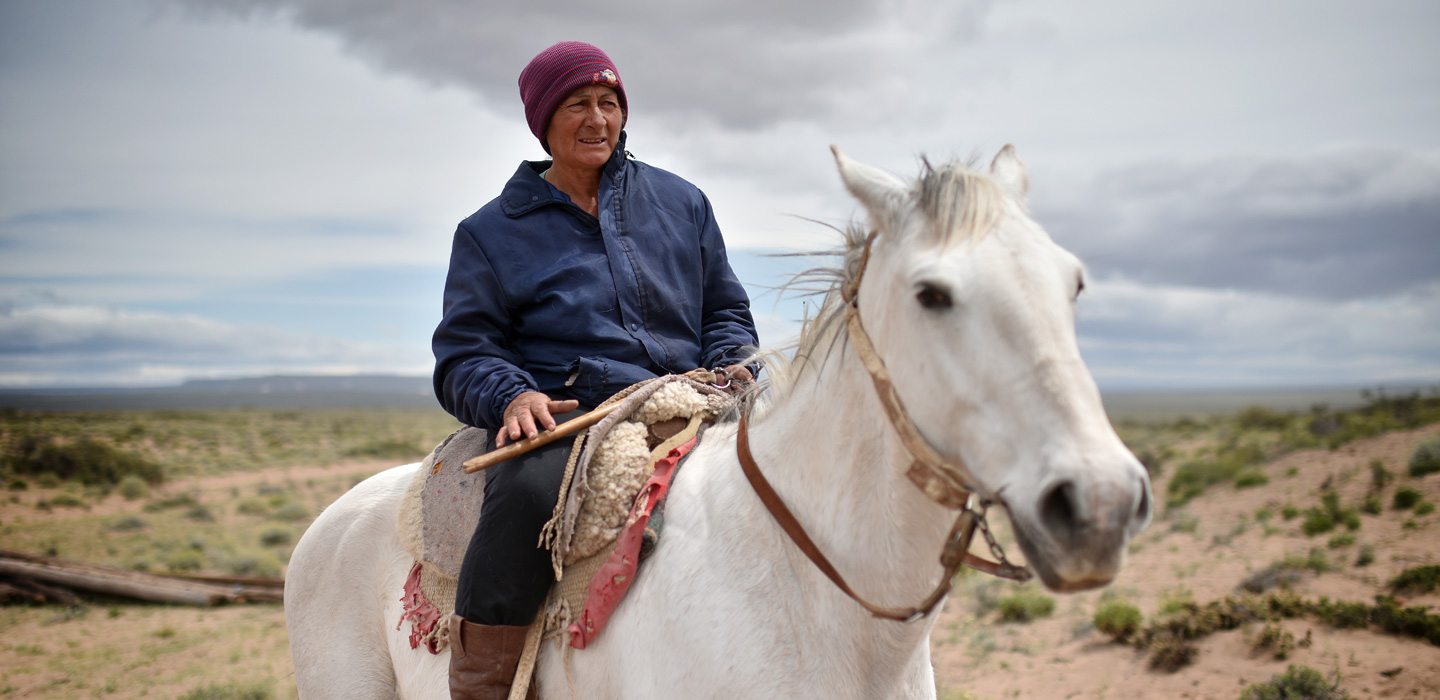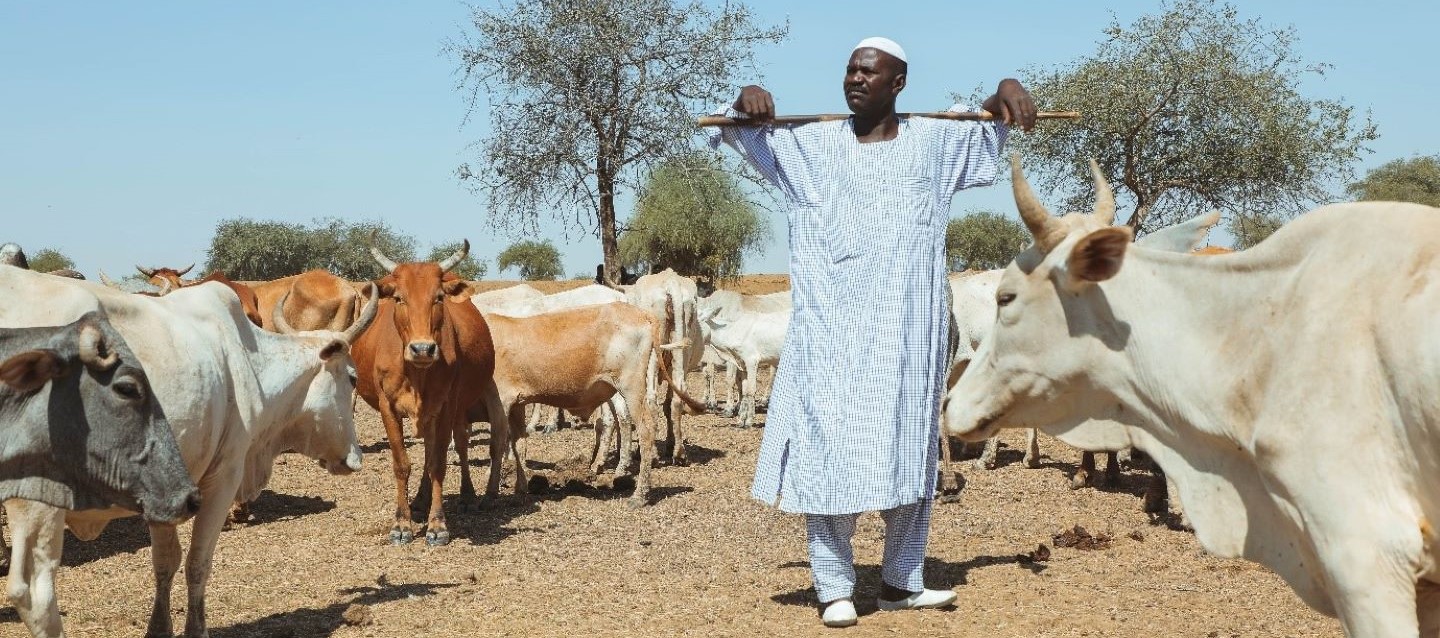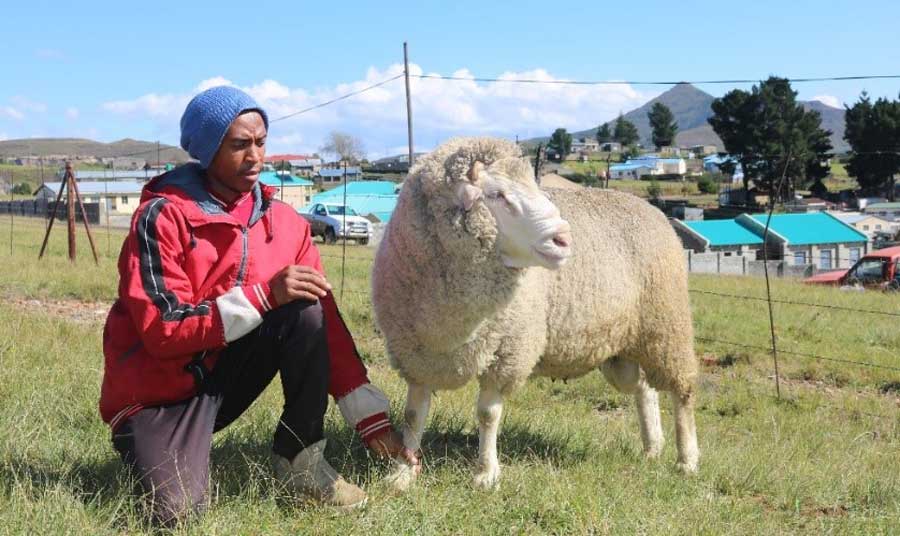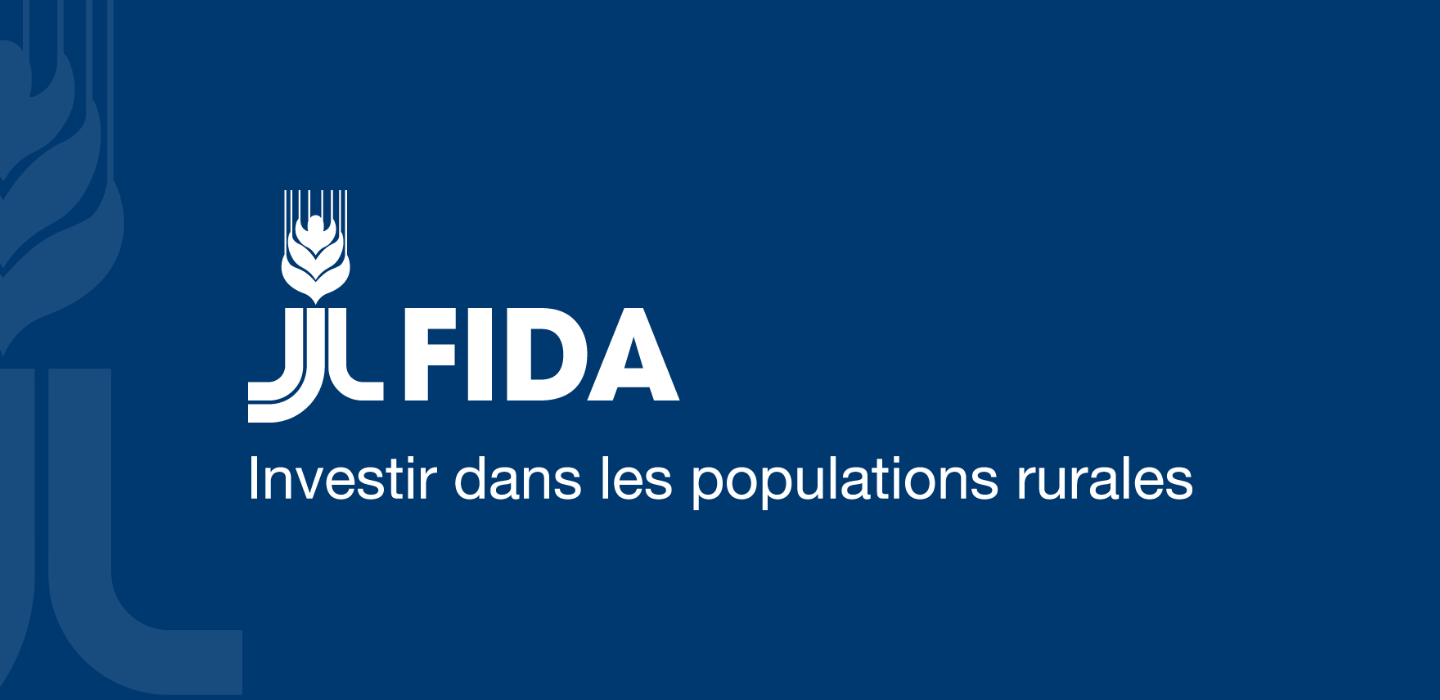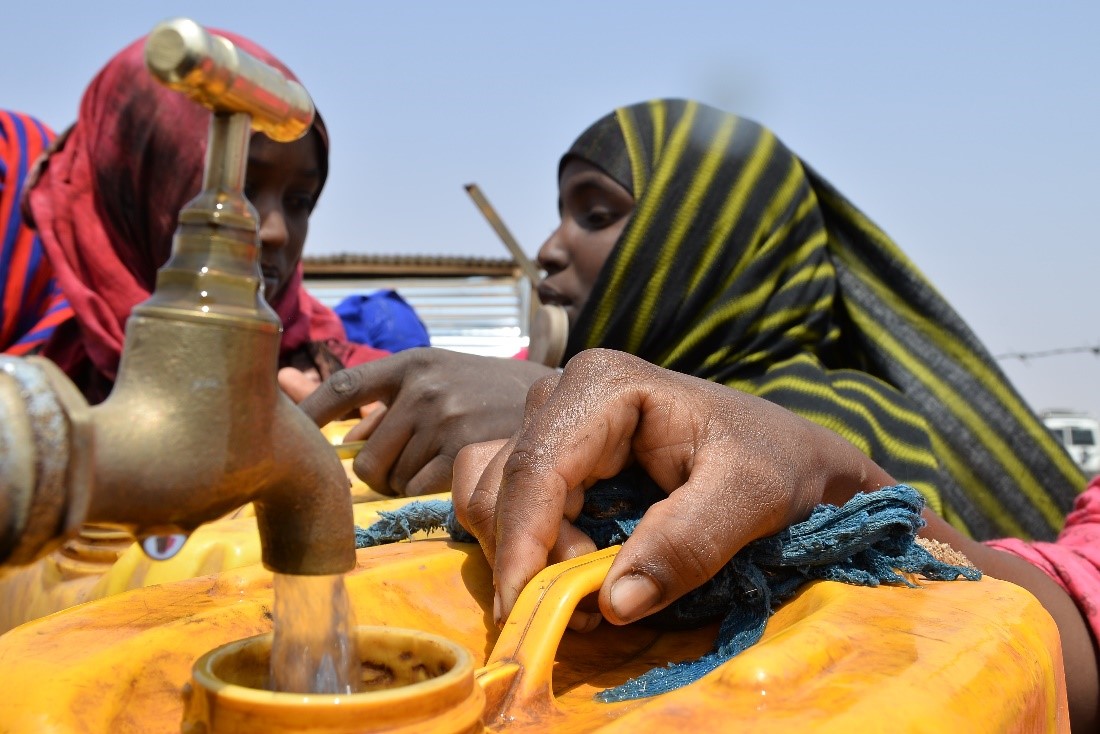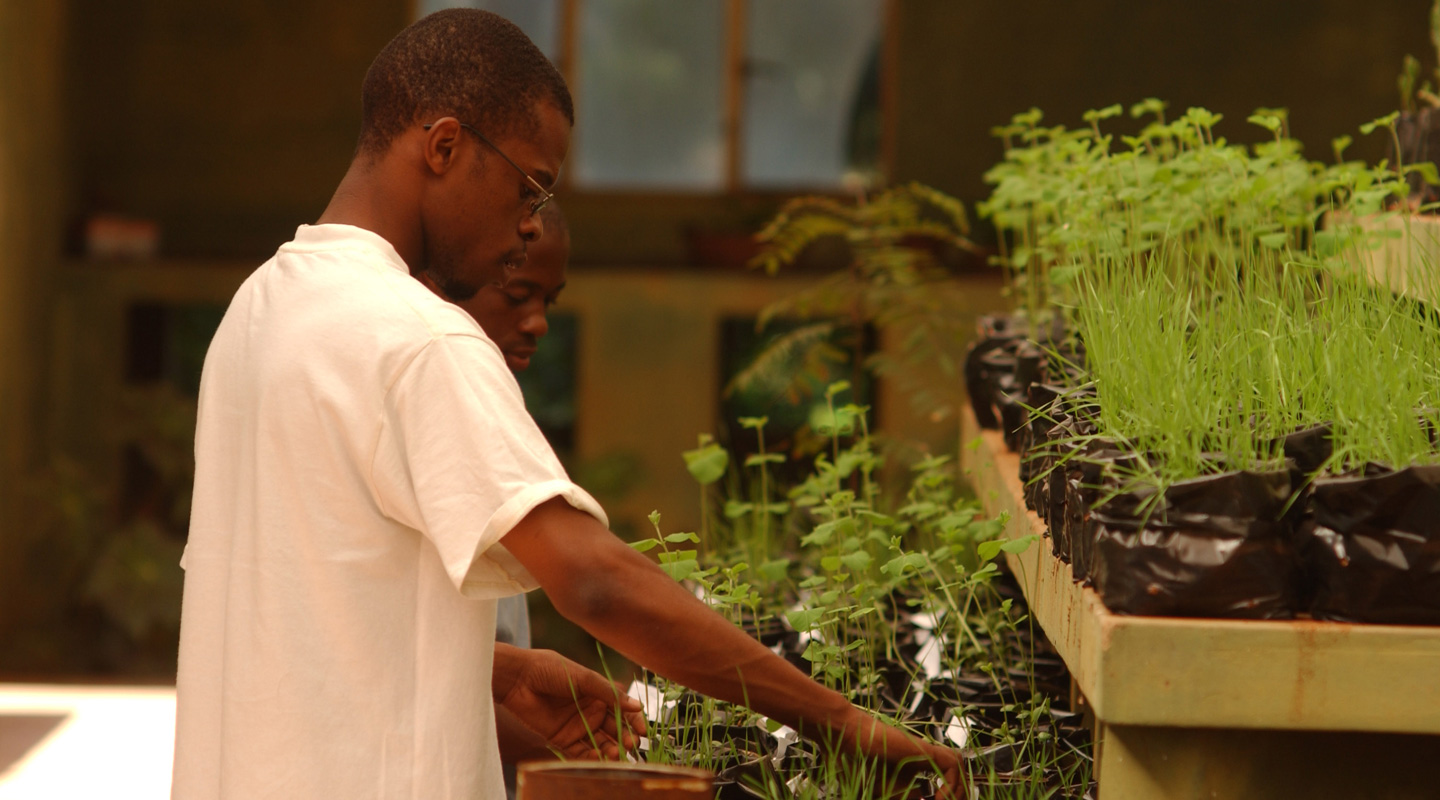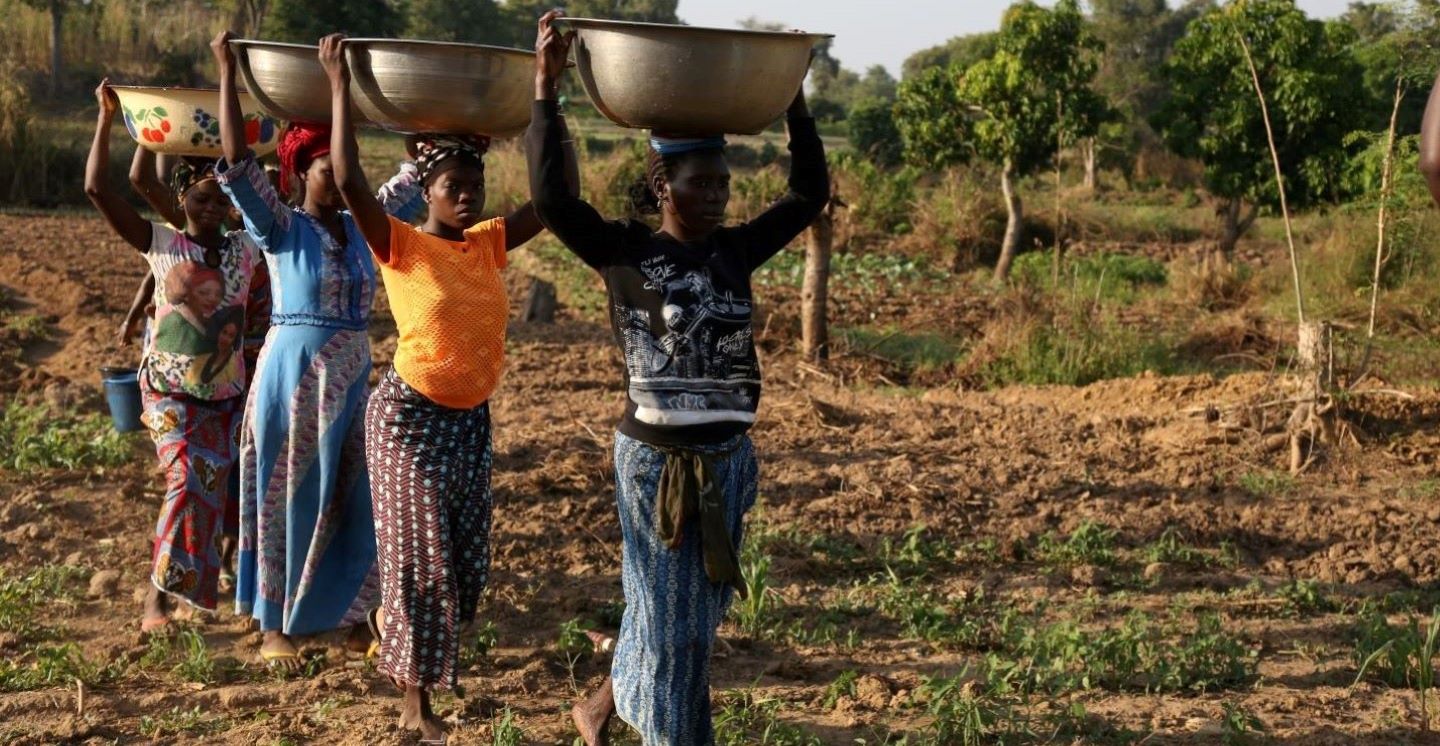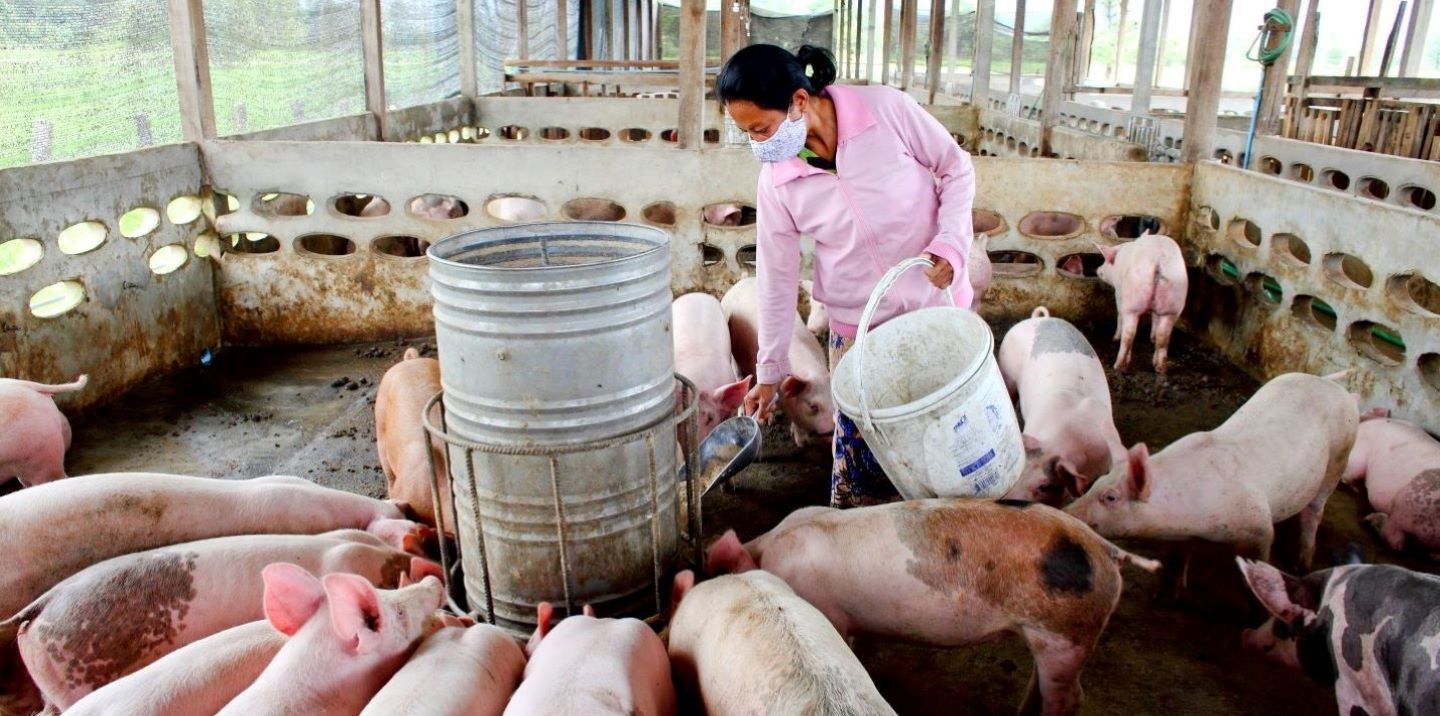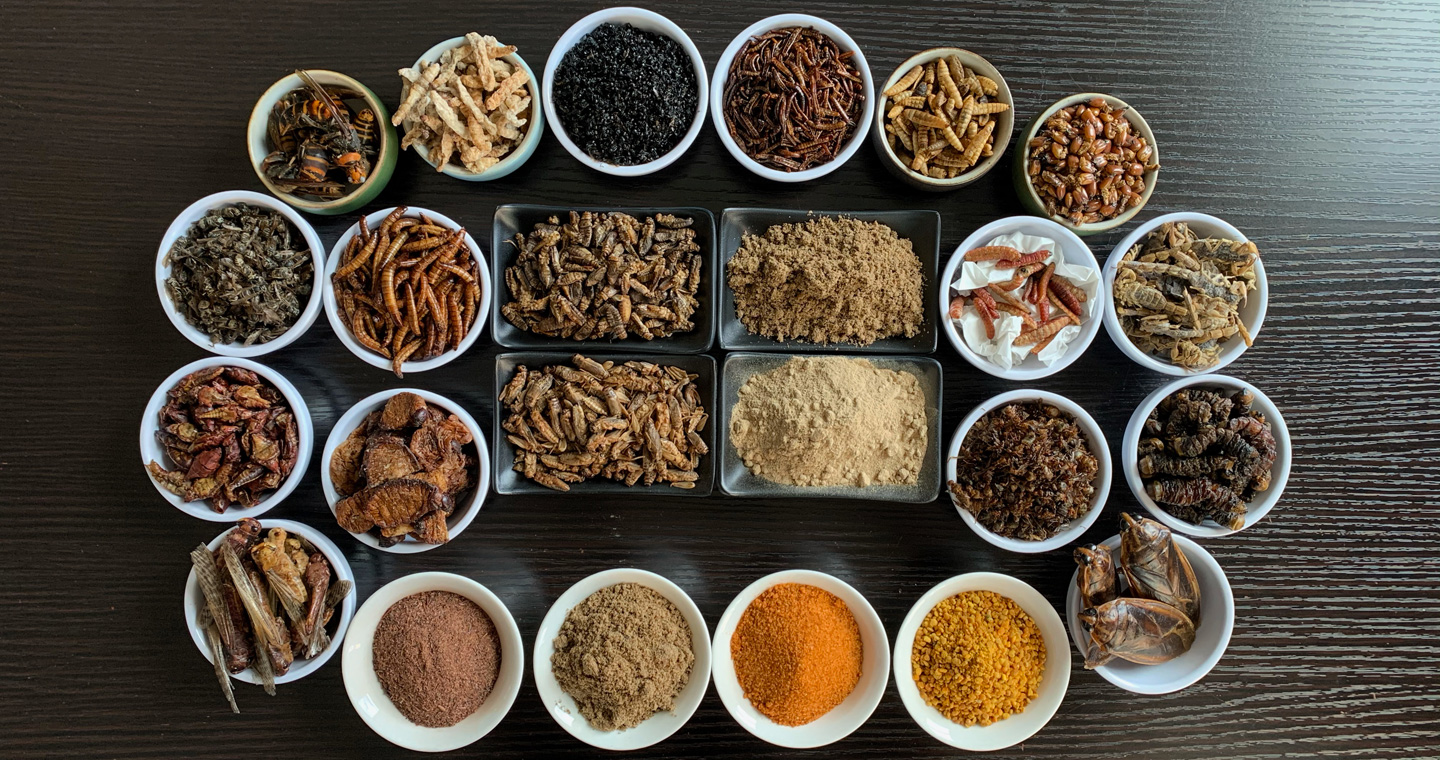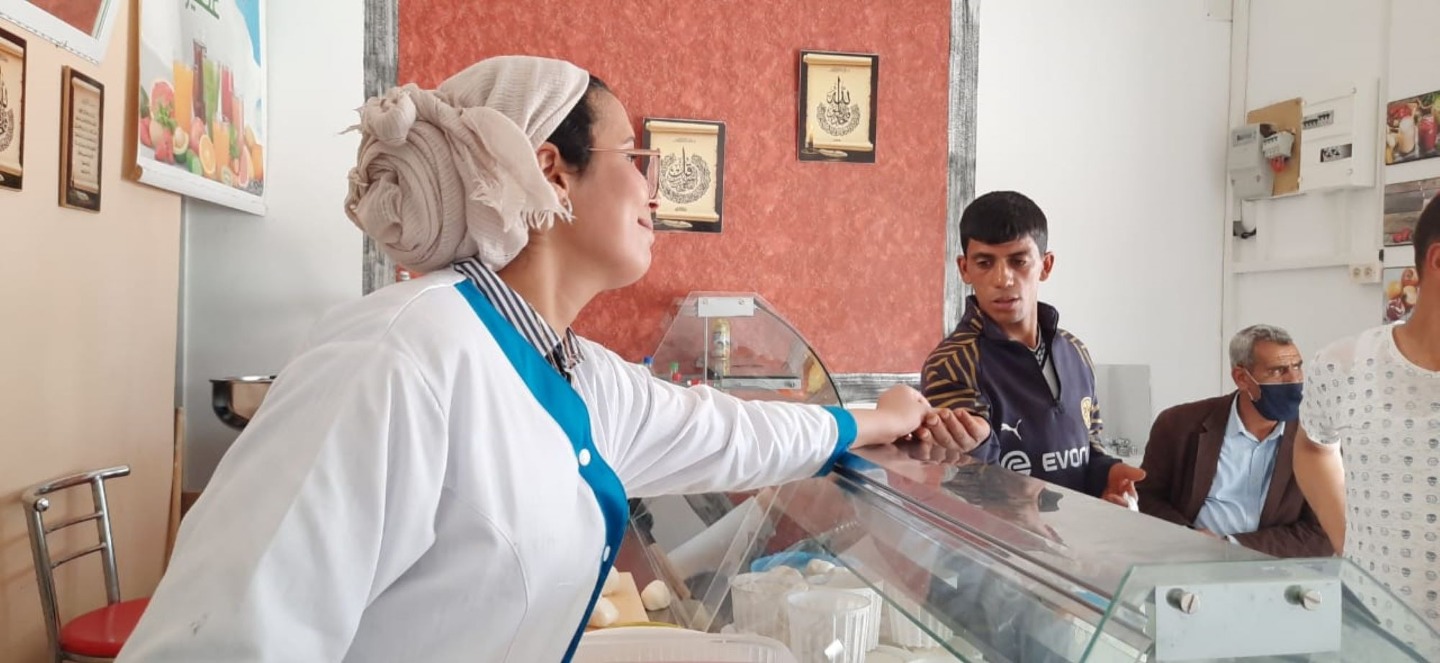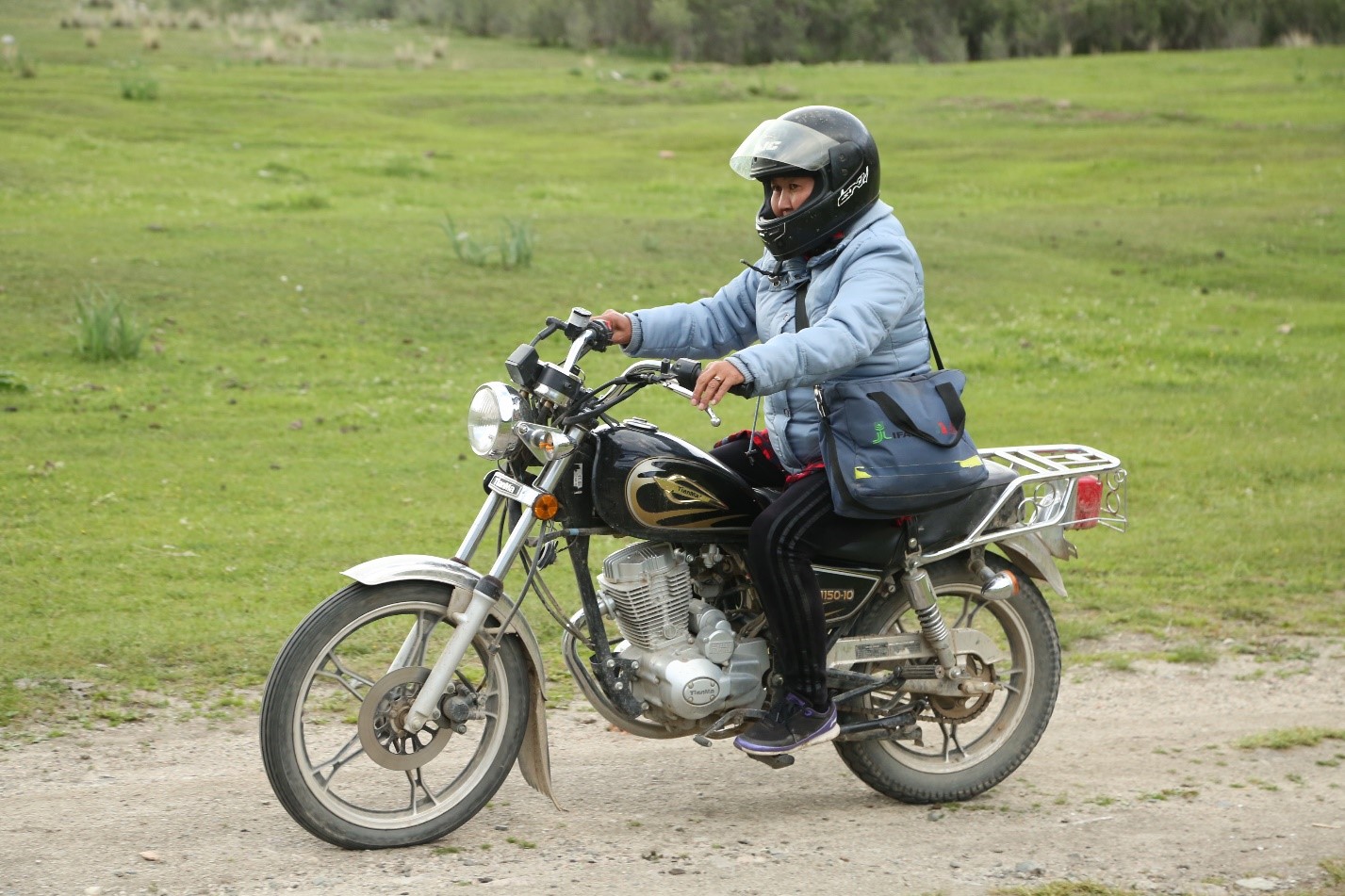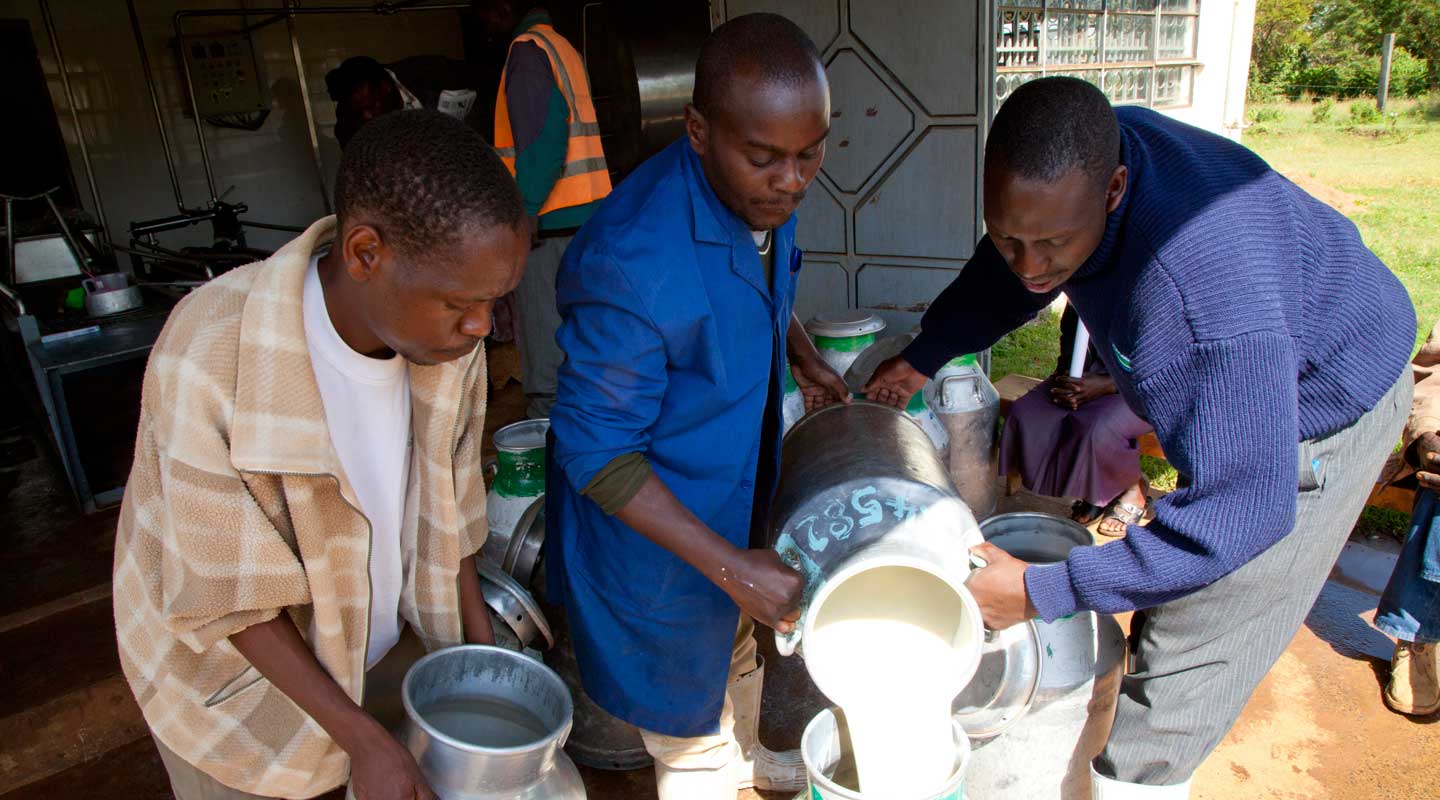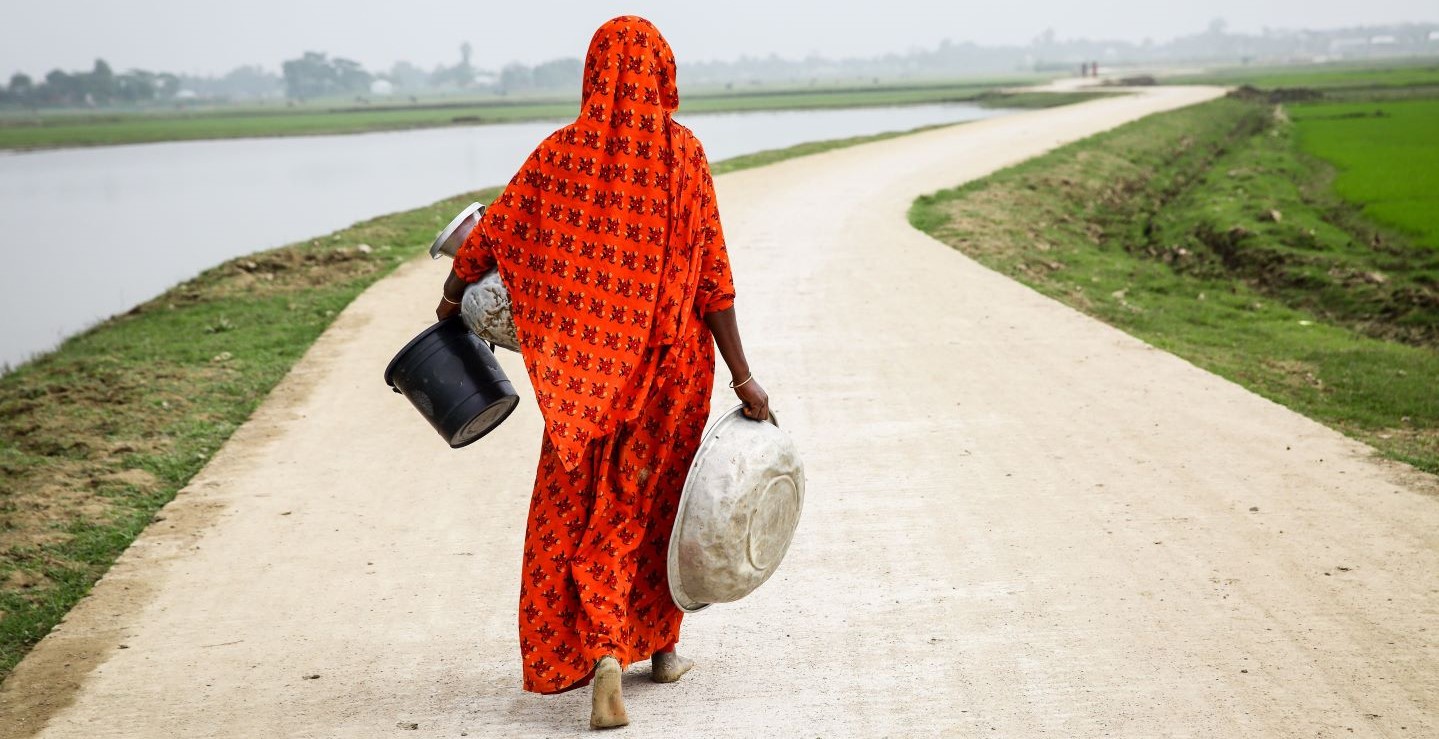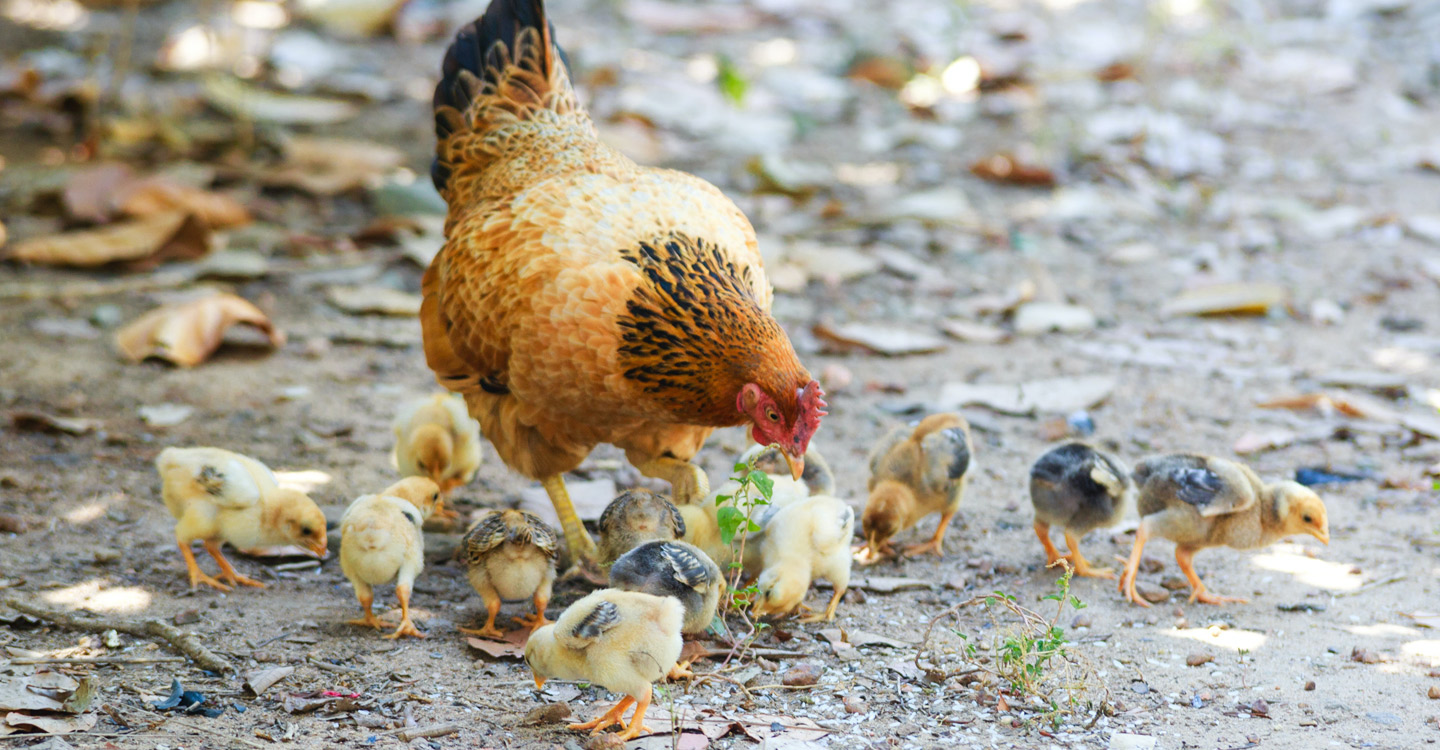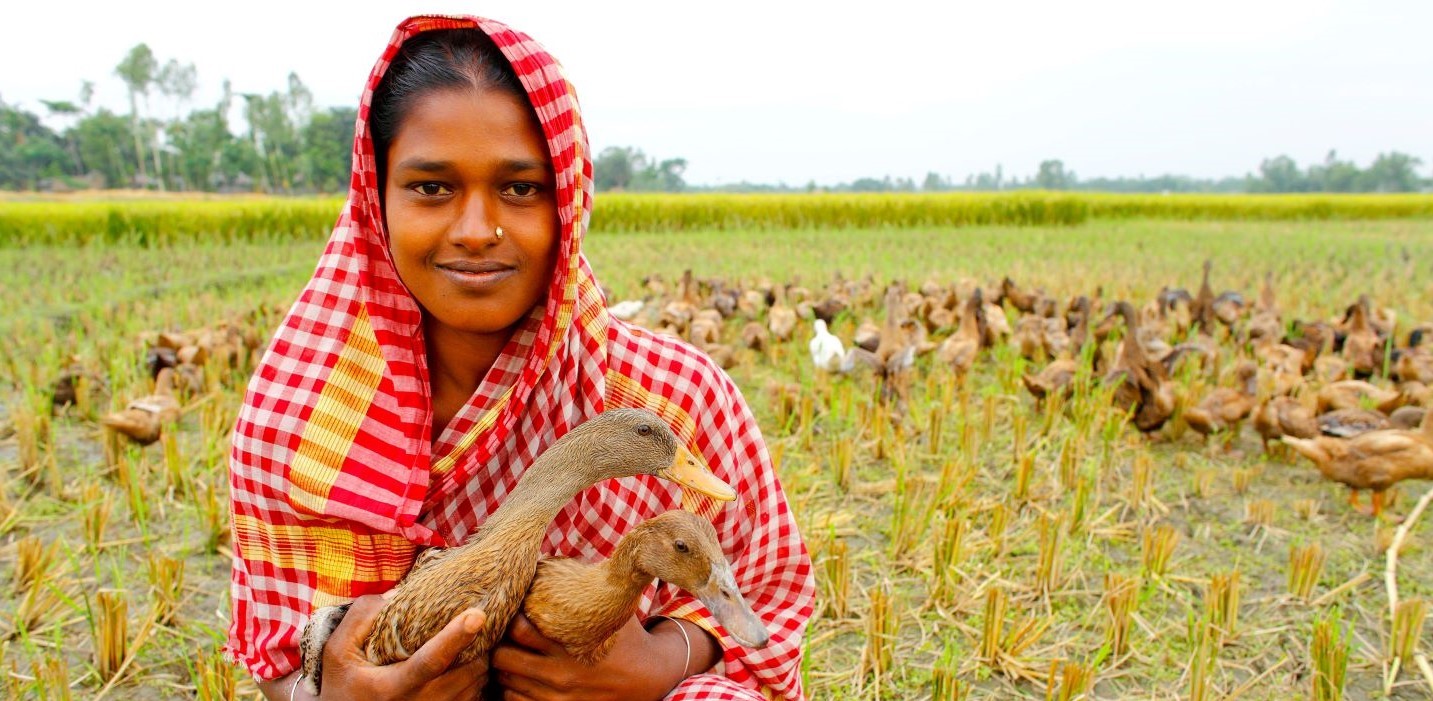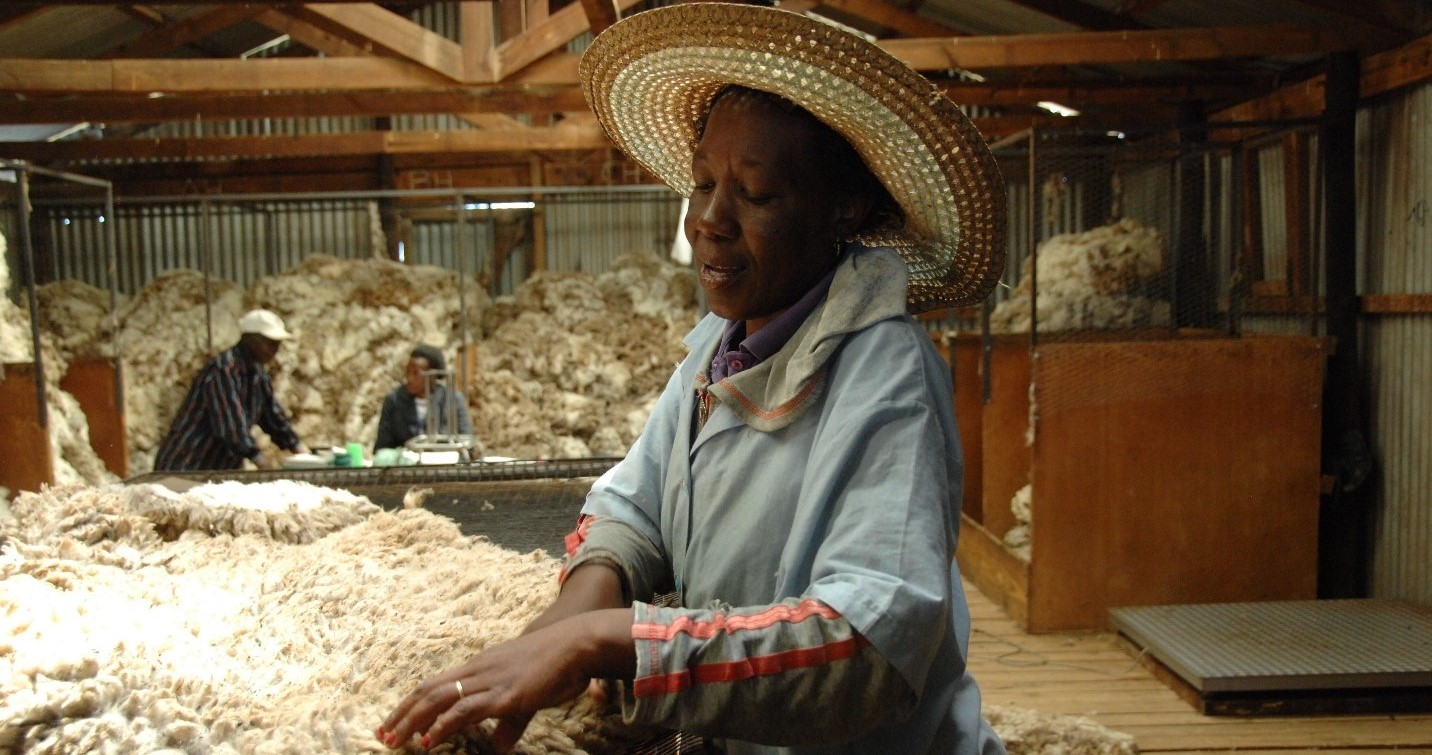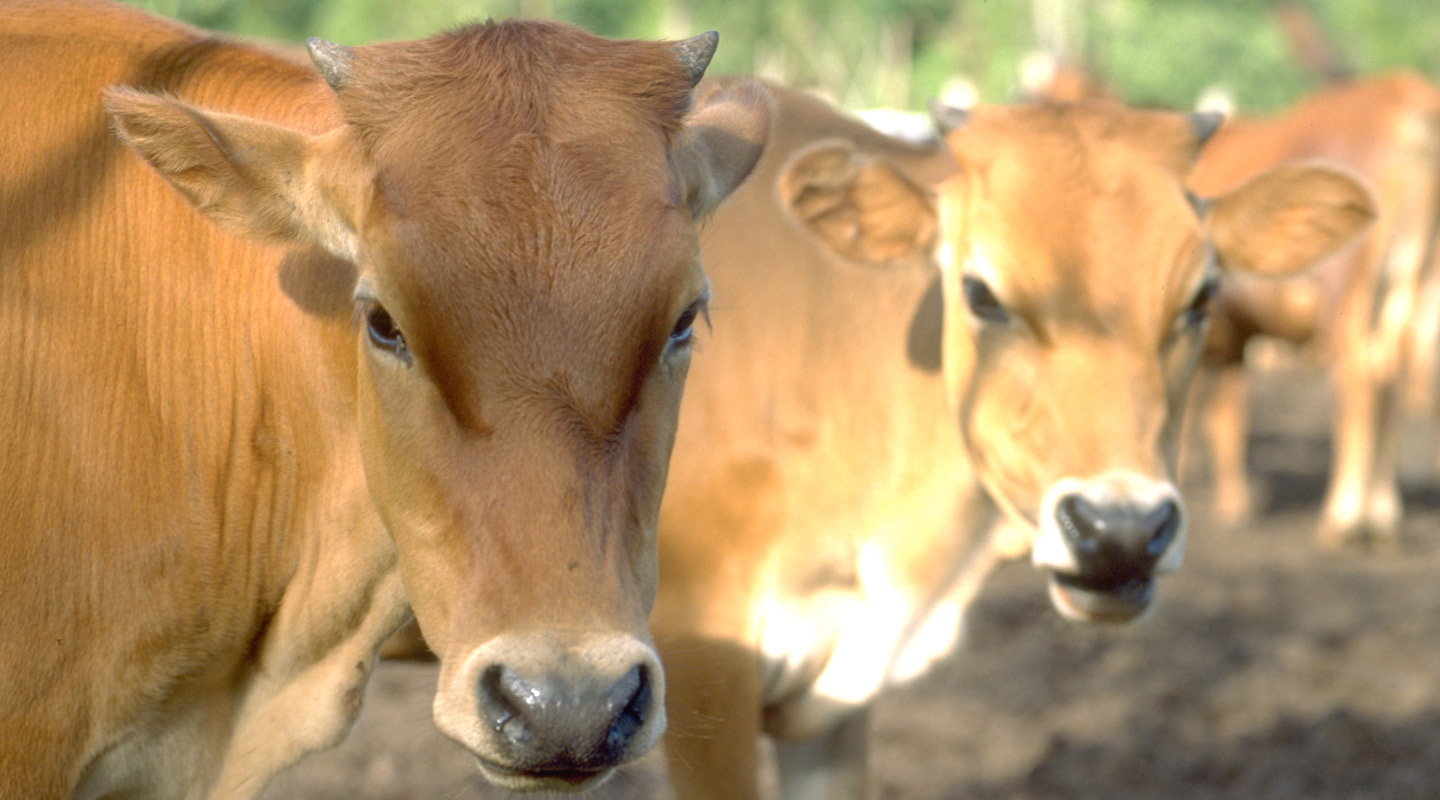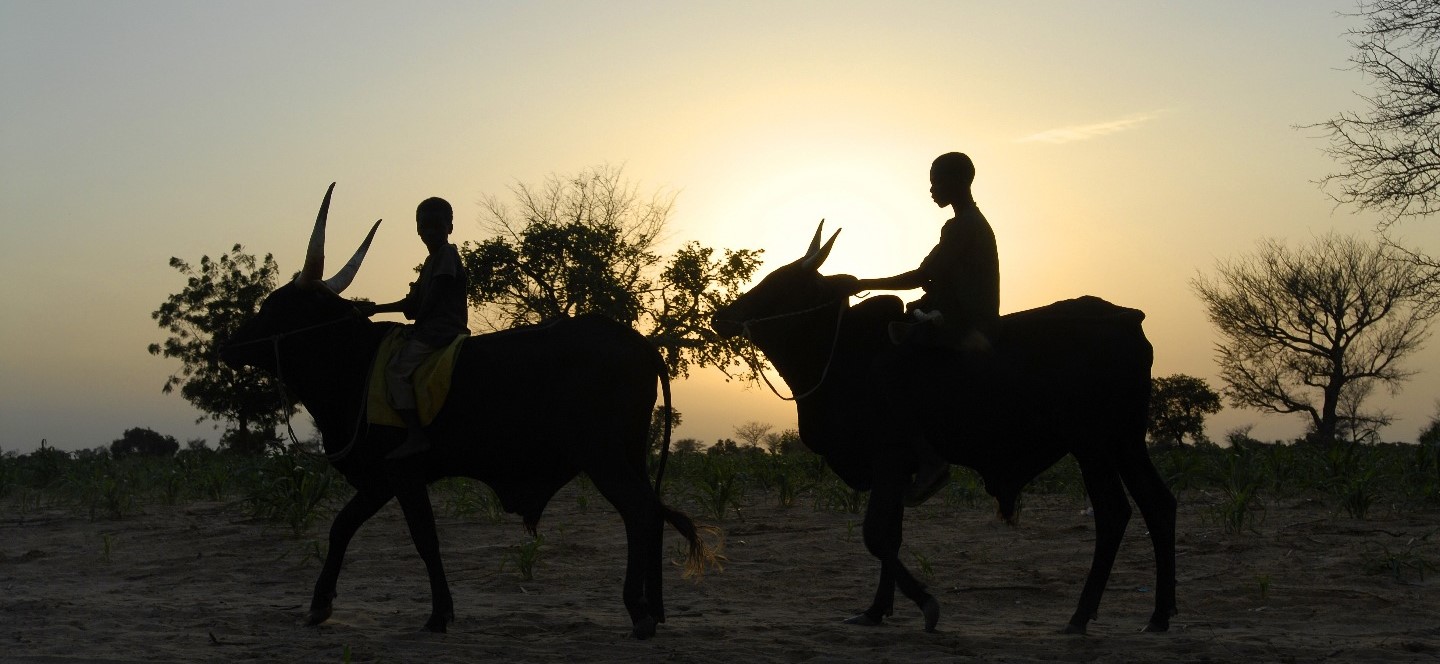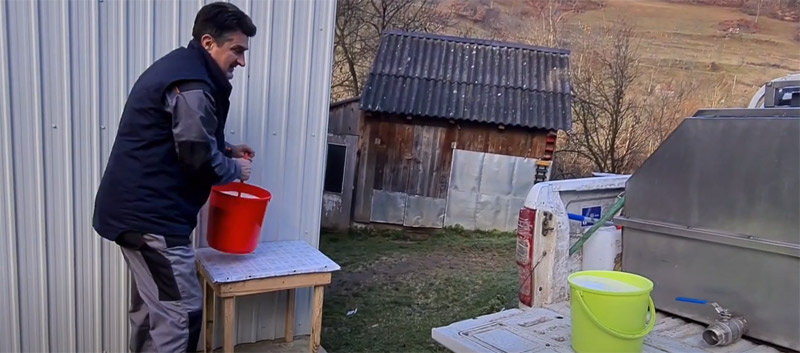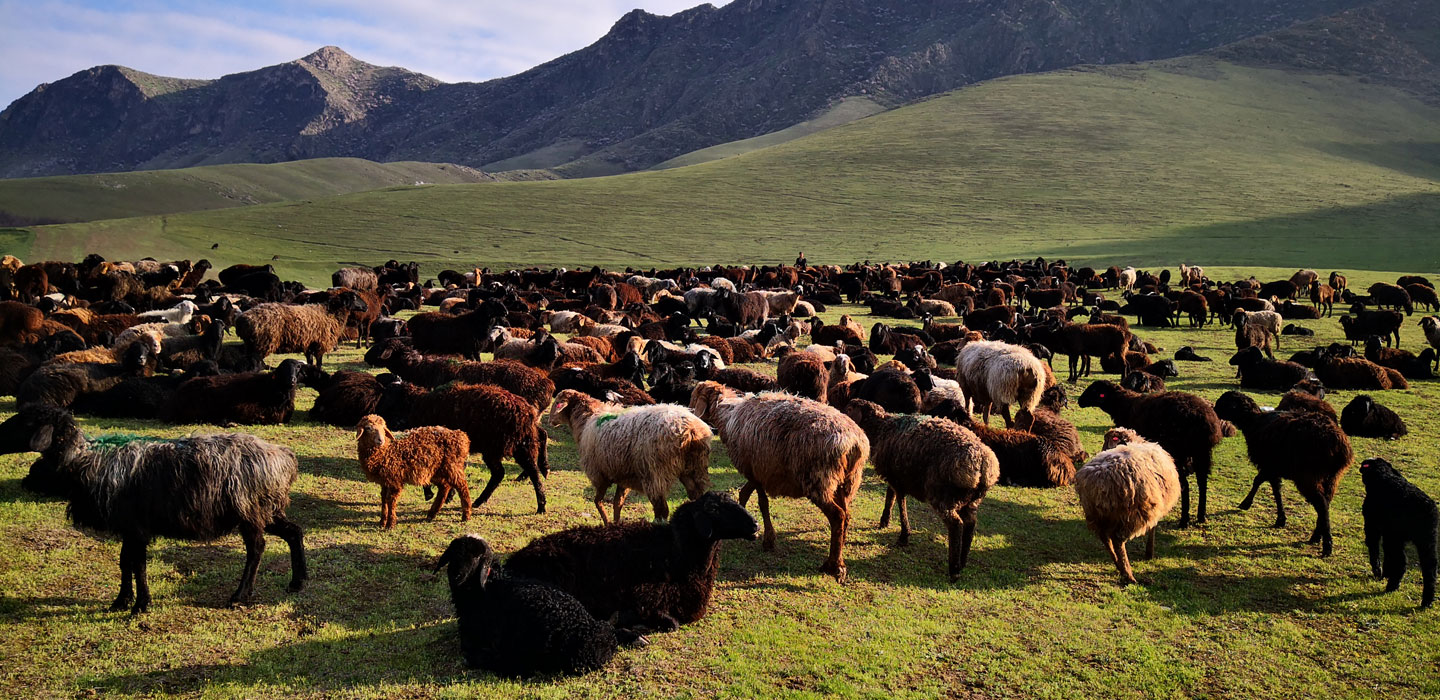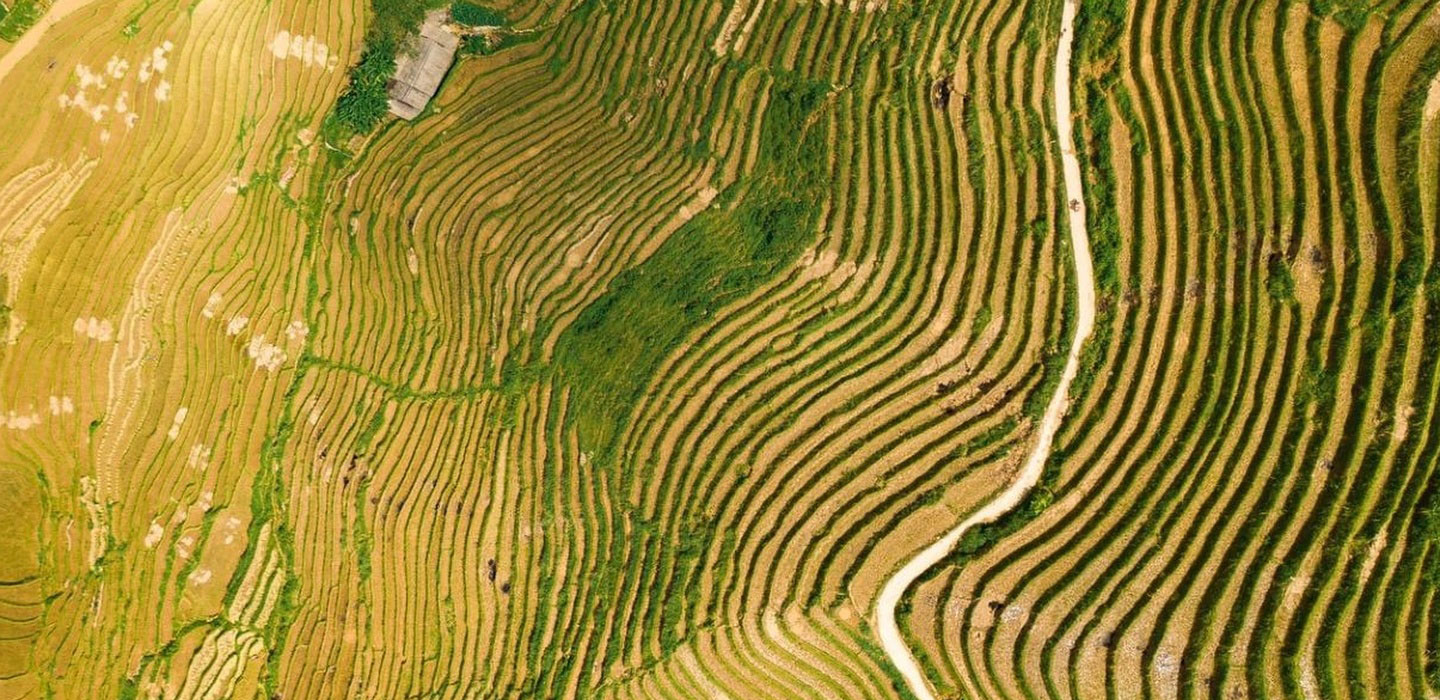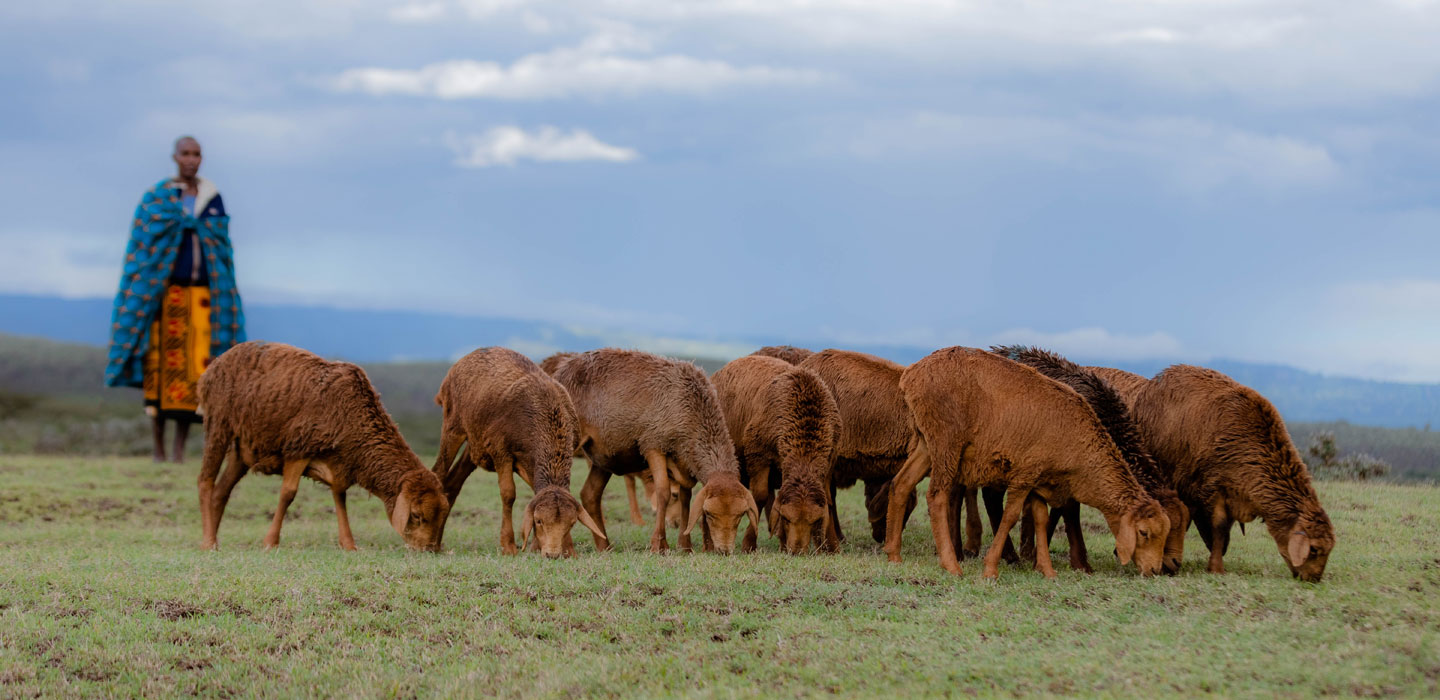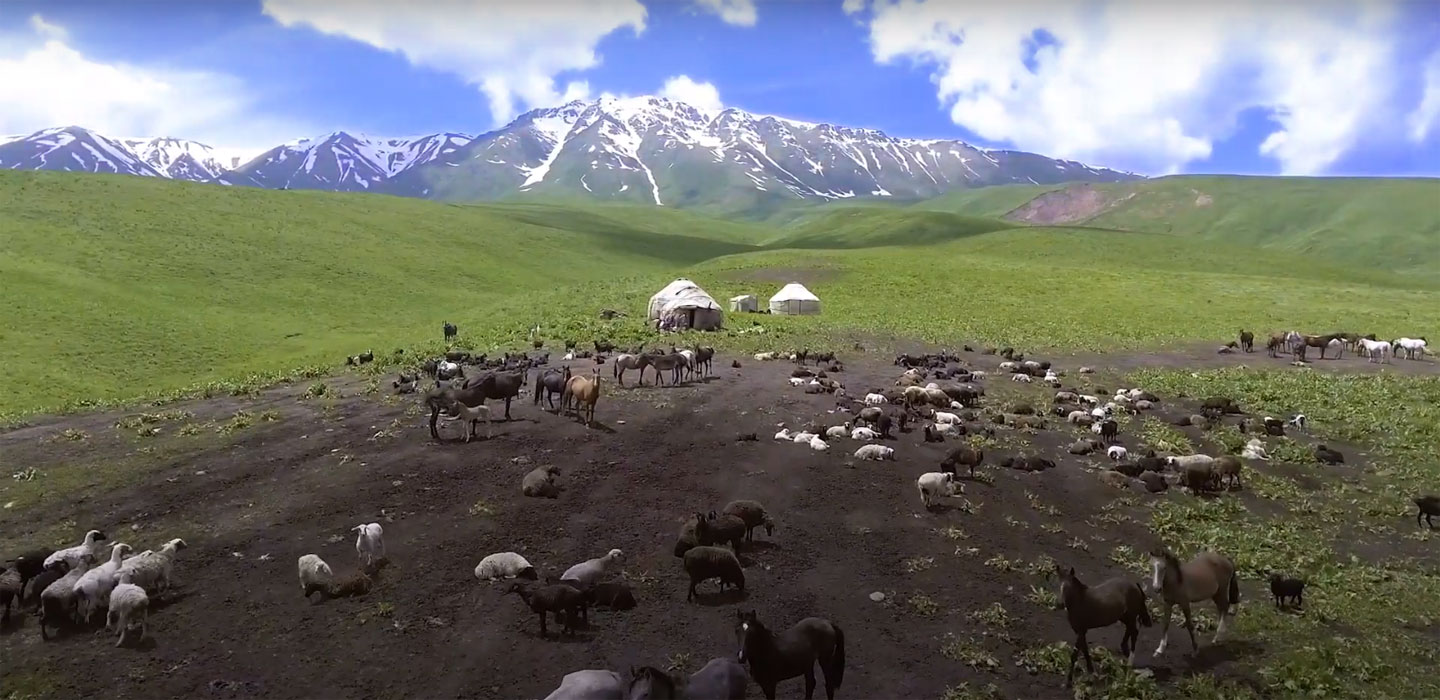Latest
Latest

Latest
Manual Submenu Topics
Search Results Filters
Search Results
See how water and peace go hand in hand
Peace and water are inextricably intertwined. That’s why sustainable rural development can help reduce conflict in communities – and why water is often the crucial element that can make the difference.
Rebuilding livelihoods in Afghanistan’s rural communities
IFAD’s Crisis Response Initiative is helping pastoralists in Herat build resilience against crises by training pastoralists in animal husbandry practices, providing veterinary units with equipment and supplying high quality feed during winter months.
IFAD and Lesotho partner to support small-scale producers increase the value of their wool and mohair
A new financing agreement aimed at improving the livelihoods of wool and mohair farmers was signed recently by IFAD and the Kingdom of Lesotho by correspondence. The new project aims to increase the economic and climate resilience of 225,000 rural people.
Why camelids are key to a better future in Bolivia and beyond
Why has the UN declared this year the International Year of Camelids? IFAD’s Country Director for Bolivia, Daniel Anavitarte, explains why you should care about these extraordinary mammals – and why they’re key to sustainable rural development in South America and beyond.
Bolivia: El FIDA promueve el intercambio de conocimientos rumbo al Año Internacional de los Camélidos
Con el apoyo técnico y financiero del FIDA, la Ruta de Resultados e Intercambio de Experiencias en la Cadena Productiva de Camélidos ha iniciado hoy, con el objetivo de mostrar los avances del sector de camélidos en los departamentos bolivianos de La Paz, Oruro y Potosí, en el marco del Programa ProCamélidos y rumbo al 2024, Año Internacional de los Camélidos - declarado por la ONU.
Five ways IFAD is making livestock more climate friendly
Countless rural people depend on livestock for livelihoods, nutrition and traditional ways of life. Supporting small-scale farmers to become even greener can strengthen food systems, preserve livelihoods and benefit our planet.
From bunnies to buffalo, livestock give rural women a living
Meet the rural women who are tending to livestock while earning a living and empowering themselves.
Winds of change for Argentina’s herders
Climate change poses a myriad of challenges for Argentina’s rural herders. But one woman has no intention of backing down and tells us how she plans to forge a new way forward.
Rural people in Sudan call time on water wars
As the climate crisis takes hold and water scarcity sparks conflict, rural people in Sudan are finding ways toward peace and equitable resource management.
How livestock in Lesotho is adapting to climate change
An IFAD-FAO study from Lesotho provides valuable insight on how to mitigate against climate change while sustainably producing enough healthy food for everyone.
Sénégal : Le FIDA et le CNCR signent un accord de don pour l’amélioration des revenus des femmes et des jeunes entrepreneurs avicoles villageois
Le FIDA et le Conseil national de concertation et de coopération des ruraux (CNCR) du Sénégal, viennent de signer un Accord de don pour améliorer les revenus des femmes et des jeunes entrepreneurs avicoles villageois ayant subi les conséquences des mesures restrictives prises pour faire face à la pandémie de Covid19.
Putting rural people in the development driving seat in Ethiopia
In Ethiopia, community driven development puts small-scale farmers in charge of identifying what they need to prosper and how development funding should be used.
Global Environment Facility tasks FAO and IFAD to lead new $230 million agrifood systems transformation program
The initiative aims to support shifts towards sustainable nature-positive production and efficient value chains for crops, commodities, livestock, and aquaculture.
The latest food security and nutrition report paints a grim picture. Three IFAD experts react to the shocking figures
The latest SOFI report shows that rather than moving towards zero hunger, evermore people are hungry. On the back of these disheartening results, three IFAD experts give their reactions to the report.
Take a 360° tour of a small, thriving pig farm in the green hills of Lao PDR
In the tiny village of Manh, nestled in the green uplands of Lao, agricultural production groups are coming together to develop their businesses and learn new techniques. For Boun Tham, groups like these made all the difference for his pig farm.
Insects to Feed the World – Episode 32
This month's episode focuses on the use of insects to feed the world – both as food for humans and feed for livestock.
From biotechnologist to artisanal cheesemaker
Ibtissèm’s career in the pharmaceutical industry was off to a strong start, but she put it on hold when her mother fell ill. Back in her hometown in central Tunisia, she needed a new way to support herself and her mother – and then she realized that her skills would serve her well in her town’s bustling dairy industry.
The Iron Horse: Improving animal and human health in Kyrgyzstan
Herding livestock is central to Kyrgyzstan’s economy, society and culture, but the nation has long lacked enough veterinarians to care for these animals. Now, an IFAD-supported project is helping to train veterinarians and make sure they reach even the country’s most remote areas.
Taking stock of the dairy business with the Wazo Jema Youth Group
Wazo Jema is one of many youth-led small businesses that got a boost through the IFAD-funded Vijabiz programme. Although they’re on more solid ground than they were before, they’ve continued to face some challenges – and these difficulties highlight ways that future initiatives can be improved.
Protecting homes and livelihoods in Bangladesh’s Haor Basin
On one terrible day four years ago, Anjuli Rani Das’s life was swept away before her eyes. A flash flood engulfed her small duck farm, washing away everything she had worked for in the past years.
Raising hope and opportunity in rural Tajikistan: Obidova’s story
Obidova is busy these days. Whether she’s setting up a new shelter for her birds or going to the markets to sell, her days are filled with taking care of her family and her poultry business. But just a year ago, things looked very different.
Preventing the next pandemic by integrating human, animal and environmental health
The COVID-19 pandemic has made it clearer than ever that human health is not just a matter of providing people with medical care. To avoid future pandemics, we need to recognize that the well-being of people, animals, plants and ecosystems must be addressed as a dynamic whole.
Finding a way forward: Sector reforms in Lesotho’s wool and mohair industry
Lesotho’s efforts to nationalize its wool and mohair industry set off a cascade of unintended consequences. At the government’s request, IFAD and the WAMPP project commissioned a study to analyze the impacts of these regulations and inform future policy revisions.
The Lare Milk Dealers find their niche
Milk processing is normally a profitable venture in Kenya’s Nakuru County, but the Lare Milk Dealers Youth Group struggled to enter the market at first. Thanks to trainings hosted by an IFAD-supported project and some innovative additions to their business model, they’re now thriving.
How small-scale producers can leverage the growing livestock market
With global production and consumption of meat projected to rise, livestock rearing is becoming an increasingly important income source for many small-scale producers. Recently, livestock farmers from around the world have been learning from each other via the SSTC framework.
A win-win partnership is boosting small farmer milk production in remote Montenegro
It’s six o’clock in Mojkova, in Montenegro and a long working day starts for Sladan Minic. It is an early wintry morning, and Sladan starts to collect milk from the local dairy farmers driving around mountainous roads.
Livestock key to combatting climate change in Kyrgyzstan
Livestock-based food systems can be climate-friendly if managed well. A new assessment tool is helping governments calculate and predict their livestock emissions for use in their NDCs.
Why land tenure is crucial for sustainable food systems
With nearly half of the world’s population living in the rural areas of low- and middle-income countries, tenure security is fundamental for sustainable development.
The Maasai of Kenya and the Red Maasai sheep slow food presidium
The rights of indigenous peoples to control their land according to their own needs and decisions is fundamental to protect their livelihoods and defend the biodiversity of native animal breeds and plant varieties.
In Kyrgyzstan, new technology preserves age-old pastures
Urmatbek Omurbekov remembers a time when grazing his livestock was a purely offline affair. Every spring, herders like him would bring their animals to the foothills of the majestic Tian Shah Mountains to let them fatten up for the next winter.
